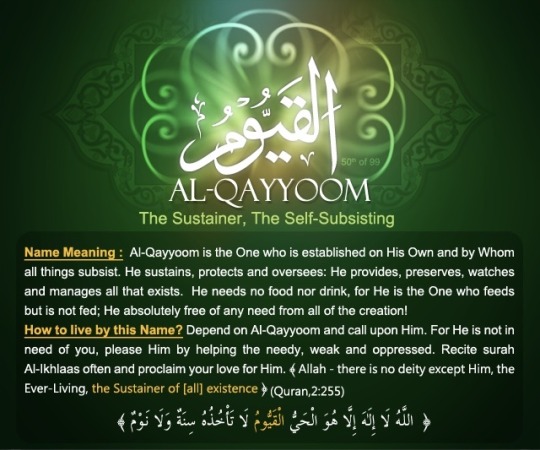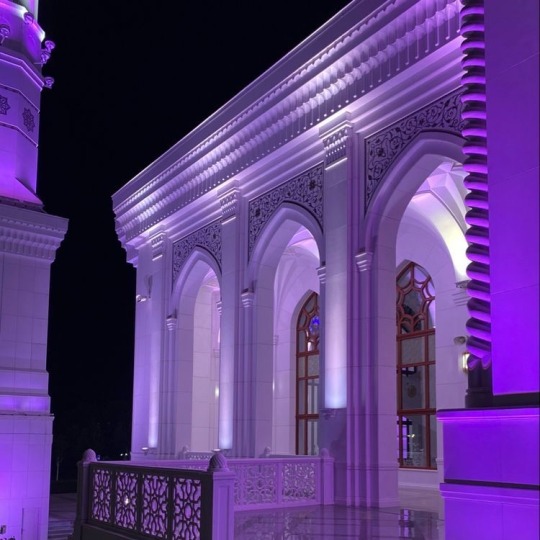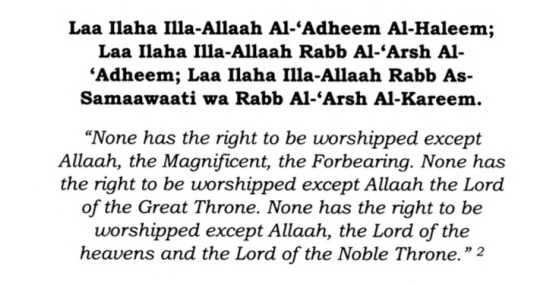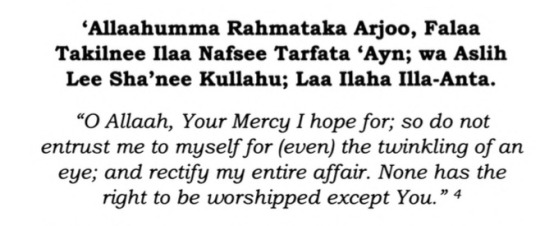#al jaami' al saheeh
Photo

#quran#written#catholics#catholicism#the catholic church#truth#facts#al jaami' al saheeh#prayer beads#hinduism#buddhism#islam#muslims#sikhism#bahai#rosary#virgin mary#dhikr#allah#false religion#Christian#hacks
1 note
·
View note
Text
Why the Opinion That a Wali Isn’t Required Is Rejected
A wali wasn't made mandatory by the other three schools of Fiqh, it was made mandatory by Allah on the words of His Messenger (ﷺ):
It was narrated by A'ishah (radhiAllah anha) that the Prophet (ﷺ) said: "Any woman who gets married without a wali, her marriage is invalid, invalid, invalid."
—at-Tirmidhi 1102; Abu Dawood 2083, ibn Maajah 1879
In another hadith, a wali is stipulated as a condition of a proper nikkah:
the Prophet (ﷺ) said: "There is no marriage contract except with a wali and two witnesses."
—Reported by at-Tabaraani, also Saheeh al-Jaami’ 7558
As for women giving themselves in marriage (acting as their own wali):
the Prophet (ﷺ) said: "No woman may conduct the marriage contract of another woman, and no woman can conduct the marriage contract on behalf of her own self, because the zaaniyah (fornicatress, adulteress) is the one who arranges things on her own behalf."
—ibn Maajah 1782; Saheeh al-Jaami’ 7298
As for what the Prophet (ﷺ) has commanded, then Allah say of it:
"He who obeys the Messenger has obeyed Allāh;"
—Qur'an (an-Nisa) 4:80
#0029#qur'an#Qur'an: An-Nisa (4)#hadith#at-Tirmidhi#Abu Dawud#Ibn Majah#at-Tabaraani#Saheeh al-Jaami'#marriage#women#fiqh
0 notes
Text
Friday Reminder!
Salawat: The Prophet (ﷺ) said: "Whoever sends blessings upon me once, Allah will send blessings upon him tenfold." [Muslim]
Surah al-Kahf:
The Prophet (ﷺ) said: "Whoever reads Surah Al-Kahf on the day of Jumu'ah, will have a light that will shine from him from one Friday to the next." [Saheeh al-Jaami]
37 notes
·
View notes
Text
𝗧𝗵𝗲 𝗿𝗲𝘄𝗮𝗿𝗱 𝗳𝗼𝗿 𝗳𝗮𝘀𝘁𝗶𝗻𝗴 𝗮𝗻𝗱 𝗽𝗿𝗮𝘆𝗶𝗻𝗴 𝗳𝗼𝗿 𝗵𝘂𝗻𝗱𝗿𝗲𝗱𝘀 𝗼𝗳 𝘆𝗲𝗮𝗿𝘀
On the authority of Aws ibn Aws Ath-Thaqafi رضي الله عنه who said: I heard the Messenger of Allāh ﷺ saying:
«مَنْ غَسَلَ يَوْمَ الْجُمُعَةِ وَاغْتَسَلَ، ثُمَّ بَكَّرَ وَابْتَكَرَ، وَمَشَى وَلَمْ يَرْكَبْ، وَدَنَا مِنَ الْإِمَامِ فَاسْتَمَعَ وَلَمْ يَلْغُ كَانَ لَهُ بِكُلِّ خُطْوَةٍ عَمَلُ سَنَةٍ أَجْرُ صِيَامِهَا وَقِيَامِهَا»
“Whoever takes a complete bath on Friday then goes very early to the Khutbah, walking and not riding, sits close to the Imam, listens and does not speak or keep himself busy then for every step is the reward equivalent to a year of fasting and praying.”
Collected by Ahmad, Abu Dawud, Tirmidhi; authenticated by Sheikh Albani in Saheeh Al-Jaami' As-Sagheer' no. 6405
Did you pay attention to the hadith?
• Every step on your way to the masjid to perform Friday prayer is equivalent to the reward of a year of fasting and praying!
• One step equals fasting and praying for 365 days!
• So if there are 100 steps between you and the masjid, it is as if you fasted and stood for 100 years, and the more steps you take the number of years increases
But this reward is subject to five conditions:
‣ Taking a full Bath
‣ Going to the masjid Early
‣ Walking to the masjid
‣ Sitting close to the Khateeb
‣ Listening to the Khutbah Silently
46 notes
·
View notes
Text
🌷Du’aas at times of Calamity and Tribulations🌷
The Prophet (Sal Allaahu Alaiyhi wa sallam) used to seek refuge with Allaah a great deal from trials and tribulations, and would say:
“Seek refuge with Allaah from trials and tribulations, both visible and hidden.” (Muslim).
We should know these duaas and use them to seek refuge in Allaah when we are tested. Some of these are:
🌷1) Ibn ‘Abbaas radhi Allaahu anhu
said that the Prophet (Sal Allaahu Alaiyhi wa sallam) said:
“My Lord came to me tonight in the most beautiful form…” and in this hadeeth he said that Allaah said,
“O Muhammad, when you pray, then say:
اللهم إني أسألك فعل الخيرات ، وترك المنكرات ، وحب المساكين ، وأن تغفر لي وترحمني وتتوب علي ، وإن أردت بعبادك فتنة فاقبضني
إليك غير مفتون
‘Allaahumma inni as’aluka fi’l al-khayraat wa tark al-munkaraat, wa hubb al-masaakeen, wa an taghfira lee wa tarhamanee wa tatooba ‘alayya. Wa in aradta bi ‘ibaadika fitnatan, faqbidnee ilayka ghayra maftoon’
“O Allaah, I ask You (to enable me) to do good deeds and avoid evil deeds, and to love the poor, and (I ask You) to forgive me, have mercy on me and accept my repentance. If You will that some trial should befall Your slaves, then take me to You [i.e., cause me to die] without having subjected to that trial).”
(Tirmidhi- saheeh by al-Albaani)
Additionally, at the end of the hadeeth, the Prophet Sal Allaahu Alaiyhi wa Sallam said,
“Verily it is true so learn it and teach it.”“
🌷 2) Umm Salama radhi Allaahu anhaa said that the Prophet (Sal Allaahu Alaiyhi wa sallam) said:
“There is no Muslim who is afflicted with a calamity and says that which Allaah has enjoined...
إِنَّا لِلَّهِ وَإِنَّا إِلَيْهِ رَاجِعُونَ اللَّهُمَّ أْجُرْنِي فِي مُصِيبَتِي وَأَخْلِفْ لِي خَيْرًا مِنْهَا
“Innaa lillaahi wa inna ilayhi raaji’oon. Allaahumma ajurni fi museebati wakhluf li khayran minha”
“Verily to Allaah we belong and unto Him is our return. O Allaah, reward me for my calamity and compensate me with something better than it”
but Allaah will COMPENSATE him with something BETTER than it.”(Muslim)
🌷3) Ibn ‘Abbaas radhi Allaahu anhu said that the Messenger of Allaah (Sal Allaahu Alaiyhi wa sallam) used to say at times of distress:
لا إله إلا الله العظيم الحليم ، لا إله إلا الله رب العرش العظيم ، لا إله إلا الله رب السموات ورب الأرض ورب العرش الكريم
“Laa ilaaha ill-Allaah al-‘Azeem al-Haleem, laa ilaaha ill-Allaah Rabb al-‘Arsh al-‘azeem, la ilaaha ill-Allaah Rabb ul-samawaati wa Rabb ul-ard wa Rabb ul-‘Arsh il-kareem”
“There is no god but Allaah, the All-Powerful, the Forbearing; there is no god but Allaah, Lord of the mighty Throne; there is no god but Allaah, Lord of heaven, Lord of earth, and Lord of the noble Throne.”
(al-Bukhaari, Muslim).
🌷 4) The Prophet (Sal Allaahu Alaiyhi wa sallam) said:
“Shall I not tell you of something that, if any worldly calamity or disaster befalls any man among you and he says these words, he will be relieved of it. (It is) the du’aa’ of Dhu’l-Noon:
لا إله إلا أنت سبحانك إني كنت من الظالمين
“Laa ilaaha illa anta subhaanaka inni kuntu min al-zaalimeen
“None has the right to be worshipped but You (O Allaah), Glorified (and Exalted) be You [above all that (evil) they associate with You]! Truly, I have been of the wrongdoers.”
According to another report:
“No Muslim man says this du’aa’ concerning anything but Allaah will answer his prayer.”
(Saheeh al-Jaami’ al-Sagheer wa Ziyaadatuhu)
🌷 5) The Messenger of Allaah sal Allaahu Alayhi wa sallam said:
“The du’aa’ of the person who is in distress is:
اللَّهُمَّ رَحْمَتَكَ أَرْجُو فَلا تَكِلْنِي إِلَى نَفْسِي طَرْفَةَ عَيْنٍ وَأَصْلِحْ لِي شَأْنِي كُلَّهُ لا إِلَهَ إِلا أَنْتَ
‘Allaahumma rahmataka arjoo fa laa takilni ilaa nafsi tarfat ‘ayn wa aslih li sha’ni kullahu laa ilaaha illa anta
“O Allaah, for Your mercy I hope, so do not leave me in charge of my affairs even for the blink of an eye; rectify all my affairs. There is no god except You” (Abu Dawood - Hasan by al-Albaani)
🌷 6) If some matter was troubling him, he (sal Allaahu Alayhi wa sallam) would say,
يا حي يا قيوم برحمتك أستغيث
Yaa Hayyu yaa Qayyoom bi rahmatika astagheeth
“O Ever-Living, O Sustainer, by Your mercy I seek Your help.”
(Saheeh al-Jaami’ al-Sagheer).
🌷 7) The Messenger of Allaah (Sal Allaahu Alaiyhi wa sallam) said to Asma’ bint ‘Umays radhi Allaahu anhaa:
“Shall I not teach you some words which you can say at times of distress and hardship?
اللهُ اللهُ رَبِّي لَا أُشْرِكُ بِهِ شَيْئًا
‘Allaahu Allaahu rabbee laa ushriku bihi shay’an
(Allaah, Allaah is my Lord, I do not associate anything with Him).’”
(Abu Dawood -saheeh by al-Albaani)
🌷 8) The Prophet sal Allaahu Alayhi wa sallam said:
“There is no-one who is afflicted by distress and grief, and says:
اللَّهُمَّ إِنِّي عَبْدُكَ ، وَابْنُ عَبْدِكَ ، وَابْنُ أَمَتِكَ ، نَاصِيَتِي بِيَدِكَ ، مَاضٍ فِيَّ حُكْمُكَ ، عَدْلٌ فِيَّ قَضَاؤُكَ ، أَسْأَلُكَ بِكُلِّ اسْمٍ هُوَ لَكَ سَمَّيْتَ بِهِ نَفْسَكَ ، أَوْ عَلَّمْتَهُ أَحَدًا مِنْ خَلْقِكَ ، أَوْ أَنْزَلْتَهُ فِي كِتَابِكَ ، أَوْ اسْتَأْثَرْتَ بِهِ فِي عِلْمِ الْغَيْبِ عِنْدَكَ ، أَنْ تَجْعَلَ الْقُرْآنَ رَبِيعَ قَلْبِي ، وَنُورَ صَدْرِي ، وَجِلاءَ حُزْنِي ، وَذَهَابَ هَمِّي
‘Allaahumma inni ‘abduka ibn ‘abdika ibn amatija naasyati bi yadika, maada fiyya hukmuka, ‘adlun fiyya qadaa’uka. As’aluka bi kulli ismin huwa laka sammayta bihi nafsaka aw anzaltahu fi kitaabika aw ‘allamtahu ahadan min khalqika aw ista’tharta bihi fi ‘ilm il-ghayb ‘indaka an taj’al al-Qur’aana rabee’ qalbi wa noor sadri wa jalaa’ huzni wa dhihaab hammi’
“O Allaah, I am Your slave, son of Your slave, son of Your maidservant; my forelock is in Your hand, Your command over me is forever executed and Your decree over me is just. I ask You by every name belonging to You which You have named Yourself with, or revealed in Your Book, or You taught to any of Your creation, or You have preserved in the knowledge of the Unseen with You, that You make the Qur’aan the life of my heart and the light of my breast, and a departure for my sorrow and a release for my anxiety),’ but Allaah will take away his distress and grief, and replace it with joy.”
He was asked: “O Messenger of Allaah, should we learn this?”
He said: “Of course; everyone who hears it should learn it.”
(Ahmad- saheeh by al-Albaani in al-Silsilah al-Saheehah)
May Allaah protect us all. Ameen
And Allaah knows best.
#islam#muslim#islamic quotes#islamic reminders#my writing#islamicreminder#muslim writers#islamic#dua
39 notes
·
View notes
Text
The Messenger [sallal laahu aalayhi wasallam] said, “Treat your sick by giving Sadaqah”.
AbuBakr Al-Khubaaziy [rahimahullaah] said: I had a very dangerous illness, so a neighbour of mine saw me and said:
Act upon the statement of Allaah’s Messenger [sallal laahu alayhi wasallam],
"Treat your sick by giving Sadaqah".
It was summertime, so I bought many watermelons and gathered a group of poor people and children.
They ate and then supplicated for me to be cured.
By Allah! I did not reach the next morning except that Allaah granted me well-being.
Siyar A’laam An-Nubulaa 18/44
Saheeh Al-Jaami As-Sagheer Wa Ziyaadah 3358
14 notes
·
View notes
Text

Allah calls Himself Al-Qayyoom— The Sustainer, The Self-Subsisting— on three occasions in the Quran. Al-Qayyoom is the One who is self-existing while every being exists through Him and because of Him. He is completely free of any dependence on anything else, while the whole creation depends entirely on Him!
The Self-Existing, The All-Sustaining
Qayyoom comes from the root qaaf-waw-meem, which points to five main meanings. The first meaning is to stand or to rise up. The second main meaning is to be or begin, the third to be ongoing and to exist. The fourth main meaning is to be founded or to be built on and the fifth is to manage and to make right.
This root appears 660 times in the Quran in 22 derived forms. Examples of these forms are qaamoo (“they stand”), aqeemoo (“establish”), istaqaamoo (“remain firm”), al qawma (” the people”) and al qiyaamah (“the Resurrection”).
Al-Qayyoom comes always in combination with the beautiful name Al-Hayy in the Quran, with Al-Hayy referring to the attribute of everlasting life and Al-Qayyoom signifying the attribute of self-existing life. Al-Qayyoom is the One who established Himself on His own and is the foundation upon which all things exist. He is the One who sustains and manages the complete creation and at the same time is without any need of any type of sustenance Himself!
Al-Qayyoom Himself says: . . . Allah – there is no deity except Him, the Ever-Living, the Sustainer of [all] existence [Quran,2:255] And [all] faces will be humbled before the Ever-Living, the Sustainer of existence. And he will have failed who carries injustice [Quran, 20:111]
The beautiful concept of qiyaam
Al-Qayyoom is among the greatest of the names of Allah ‘azza wajal and its origin is the word al-qiyaam. From this root a few of the most important concepts of Islam evolve. The iqaamah, is the call just before the obligatory prayer is established. In our prayer we recite the Quran in the standing position (qiyaam); we do not recite Quran in the sitting position, nor during our ruku (bowing), nor during our prostration. Great importance has the night prayer for the believer, which is referred to as qiyaam ul layl. True believers are adorned with istaqaamah (to remain firm) on the straight path of Islam (siraatul mustaqeem) and ultimately we will all be brought in front of Al-Qayyoom on the Day of Standing, Yawm ul Qiyaamah.
How Can You Live By This Name?
1. Establish salah.
Aqeemoo as-salah! Al-Qayyoom instructs you many times in the Quran to establish the prayer. But do you really establish your salah in your daily life, or do you fit your prayers around your daily routine? One of the sahaabah asked: “What is the thing that Allah loves most?” The Prophet said: “The thing that Allah loves most is when his people pray salah on time.” [Al-Bukharee] Fit your daily activities around your salah and not your salah around your daily activities. Focus on praying your salah on time for a week and see the difference in your emaan!
2. Recite surah Al-Ikhlaas often.
This surah contains a beautiful description of Allah, His Oneness and His self-existing and sustaining attributes . The Prophet salallahu ‘alayhi wa sallam heard a man reciting ‘Qul huwa Allaahu ahad,’ and said, “It is his right.’ They asked, ‘O Messenger of Allaah, what is his right?’ He said, ‘Paradise is his right.’ [ Ahmad] He salallahu ‘alayhi wa sallam also said: “Whoever recites Qul huwa Allaahu ahad ten times, Allaah will build for him a house in Paradise.” [Saheeh al-Jaami’ al-Sagheer] So recite it whenever you can: whenever you have a spare moment, fill it with recitation of surah al-Ikhlaas!
3. Help sustain the needy.
The Prophet salallahu ‘alayhi wa sallam said: If you love the poor and bring them near you . . . Allah will bring you near Him on the Day of Resurrection.[At-Tirmidhi]
4. Humble yourself.
We have no reason to ever be arrogant, and this name should humble us. When you were born your parents needed to do everything for you; you could not even sit by yourself. As you grow, developing your intellect and body, you become less dependent on your parents. Then your body and mind start decreasing in strength, and you go back to the beginning where others need to take care of you again. Even when you feel strong, still remember you are completely dependant on Al-Qayyoom.
5. Help in the cause of Islam.
Even though Al-Qayyoom does not need any of us, nor does He need food, drink or sleep, He made you a beautiful promise in the Quran: O you who believe! If you “help Allah,” He will help you. [Quran, 47:7] This means you should do your best to help in the cause of Allah’s Deen, for Al-Qayyoom is the One Who is in full charge of all things. Ask Him to make you of those who help the Deen by spreading the message of the Quran, teaching and helping others.
6. Think about the Day of Standing.
The Prophet salallahu ‘alayhi wa sallam said, You will surely stand before Allah, no screen between Him and you, no interpreter to translate for you. Then He will say, ‘Did I not bring you wealth?’ He will say, ‘Yes.’ Then He will say, ‘Did I not send you a Messenger?’ He will say, ‘Yes.’ Then he will look to his right and left and see nothing but Hell. So protect yourselves from it even with half a date (in charity), and if not then with a kind word. [Al-Bukharee] Daily remind yourself about this moment and make sure you do a deed of charity each day, even if it’s a kind word to someone!
7. Stand in the night.
The best prayer after the obligatory ones is the night prayer [Muslim]. Abu Sulaimaan Ad-Daaraanie said, Those who pray in the night enjoy when they are observing their night prayer more than what the people of pastime and fun enjoy from their pastime. If not because of the night, I would not have loved to remain in this world. When Umar was dying, he said I do not grieve on anything of this life except the night prayer. Some people think only those who have strong emaan can pray and they are not good enough, but in fact qiyaam ul layl is the opportunity for those who feel far away from Allah to become closer to Him, so go for it and motivate others to gain extra reward!
Wallahu ta’alaa ‘alem.
O Allah, Al-Qayyoom, we know that You are the One who is self-existing and sustaining all. Bless us with humility in our worship and dealing with others and make us of those who help the needy and strive in the cause of Islam. Guide us in truly establishing the prayer in our lives, enable us to practice qiyaam ul layl, often make us remember standing before You and give us a longing to meet You and actions that bring us closer to You, ameen!
#allah#islam#revert help team#asma al husna#revert help#muslim#ayat#daily#allah’s name#dua#pray#prayer#salah#muslimah#hijab#religion#reminder#Mohammed#new muslim#new revert#new convert#how to convert islam#converthelp#convert islam#become a muslim#welcome to islam#daily ayat#prophet#god#revert
15 notes
·
View notes
Text



Khushoo’ in Salah
(Part 4)
The means of developing Khushoo’
4. Thinking about the aayaat and adhkaar being recited during the prayer and interacting with them.
The Qur’aan was revealed to be pondered over. Allah says (interpretation of the meaning): “(This is) a Book (the Quraan) which We have sent down to you, full of blessings that they may ponder over its Verses, and that men of understanding may remember.” [Saad 38:29]. No one can ponder over its verses unless he has some knowledge of the meaning of what he is reciting, so that he can think about it and be moved to tears by it.
•Another way of helping oneself to ponder over the meanings is to repeat aayaat, because this will help one to think deeply and look again at the meanings.
•Another way of helping oneself to ponder over the meanings is to memorize Quraan and various adhkaar to be recited during different parts of the prayer, so that one may recite them and think about their meanings.
5. Pausing at the end of each ayah:
This is more helpful in understanding and thinking about the meaning, and it is the Sunnah of the Prophet ﷺ , as Umm Salamah (رضي اللّٰه عنه ) described how the Messenger of Allah ﷺ would recite, “Bismillah il-Rahmaan il-Raheem”, and according to one report, he would pause, then say, “Al-hamdu Lillaahi Rabbi‟l- „Aalameen, al-Rahmaan, al-Raheem.” Then according to one report, he would pause, then say, “Maaliki yawm il-deen,” and he would break up his recitation ayah by ayah. (Reported by Abu Dawood, no. 4001; classed as Saheeh by al-Albaani in al-Irwaa‟, where its isnaads are described. 2/60).
•Pausing at the end of each ayah is Sunnah even if the meaning continues into the next ayah.
•Reciting in slow, rhythmic tones (tarteel) and making one’s voice beautiful when reciting. The Prophet (peace and blessings of Allah be upon him) “would recite a surah in such slow rhythmic tones that it would be longer than would seem possible.” (Reported by Muslim, no. 733).
•Another way of helping oneself to have khushoo’ is by making one’s voice beautiful when reciting. This is something that was advised by the Prophet ﷺ , as when he said, “Beautify the Qur‟an with your voices, for a fine voice increases the Quraan in beauty.” (Reported by al-Haakim, 1/575; Saheeh al- Jaami‟, no. 3581).
6. Knowing that Allah responds to prayers:
The Prophet ﷺ said: “Allah ﷻ has said: I have divided the prayer between Myself and My slave, into two halves, and My slave shall have what he has asked for.” When the slave says “Praise be to Allah, Lord of the Worlds”, Allah says, “My slave has praised Me.” When the slave says, “The Most Merciful, the Bestower of Mercy,” Allah says, “My slave has extolled me.” When the slave says, “Master of the Day of Judgement,” Allah says, “My slave has glorified me.” When the slave says, “It is You alone we worship and it is You alone we ask for help,” Allah says, “This is between Me and My slave, and My slave shall have what he asked for.” When the slave says, “Guide us to the Straight Path, the path of those whom You have favoured, not the path of those who receive Your anger, nor of those who go astray,” Allah says, “All these are for My slave, and My slave shall have what he asked for.” (Saheeh Muslim).
•This is a great and important hadith. If everyone kept it in mind when he prays, he would attain immense khushoo’ and al-Faatihah would have a great impact on him. How could it be otherwise, when he feels that his Lord is addressing him and giving him what he is asking for?
•This “conversation” with Allah must be respected and accorded its proper value. The Messenger of Allah ﷺ said: “When any one of you stands to pray, he is conversing with his Lord, so let him pay attention to how he speaks to Him.” (al-Haakim, al-Mustadrak, 1/236; Saheeh al-Jaami‟, 1538).
Source: 33 Ways of developing Khushoo’ in Salaah by Sheikh Muhammed Salih Al-Munajjid
#islam#islamic#muslim#convert to islam#life#ahlussunnahwaljamaah#ahlusunnah#salafi#salafushalih#sayings of the salaf#makkahalmukarramah#makkah#madinah#madinahalmunawwarah#masjid#masjid al aqsa#masjidalnabawi#masjidalharam#islamicquotes#islamic reminders#islamic quotes#motivationalwords
29 notes
·
View notes
Text
In times of distress




Al-Bukhaaree no. 6346 and Muslim no. 2703 (2). Aboo Daawud no. 5090. Al-Albaanee graded it as Hasan in Saheeh Al-Jaami’ no. 3388 (4). At-Tirmidhee no. 3505; Al-Albaanee graded it as Saheeh in Saheeh Al-Jaami’ no. 3383 (5)
20 notes
·
View notes
Text
The Prophet ﷺ said:
“Whoever controls his anger at the time when he has the means to act upon it, Allaah will fill his heart with contentment on the Day of Resurrection.”
{Saheeh al-Jaami’, 6518}
85 notes
·
View notes
Text

The Messenger of Allah ﷺ said:
"Fasting the month of patience (Ramadan) and the three days of every month removes al-Wahar (rancour, ill feelings and evil thoughts) from the heart."
— Reference: Saheeh al-Jaami as-Saghir wa Ziyaadah, Hadeeth number 3804, Shaikh al-Albaanee (rahimahullaah) said the Hadeeth is Saheeh. [Translated by Aboo abdillaah Bilaal Hussain al-kashmiree]
9 notes
·
View notes
Note
In Islam is it women’s duty to do household chores or can husband help too
In Islamic teachings, there are several hadiths that emphasize the importance of kindness and cooperation within the family, including sharing household responsibilities. For example, Prophet Muhammad (peace be upon him) is reported to have said: "The best of you is the one who is best to his wife, and I am the best of you to my wives." ( Sunan Ibn Majah 1977 ) and also that Aa’ishah (may Allah be pleased with her) was asked: What did the Messenger of Allah (blessings and peace of Allah be upon him) do in his house? She said: He was a human being like any other; he would clean his garment, milk his sheep and serve himself. Narrated by Ahmad, 26194; classed as saheeh by al-Albani in as-Saheehah, 671
According to another report also narrated by Ahmad (24903): He used to stitch his garment, mend his shoes and work as other men work in their houses. Classed as saheeh by al-Albani in Saheeh al-Jaami‘, 4937.
This hadith highlights the Prophet ﷺ exemplary treatment of his wives and serves as a reminder for Muslim husbands to treat their wives with kindness and respect, which includes helping with household chores.
Prophet Muhammad ﷺ actions show that it is not beneath a man's dignity to participate in household chores and support his wife in maintaining the household. It emphasizes the importance of mutual respect and cooperation between spouses, regardless of gender roles or societal norms.
4 notes
·
View notes
Text
The Prophet ﷺ said:
“The hour is drawing ever closer,
and people are only becoming ever keener on obtaining the pleasures of this worldly life,
and ever more distant from Allah.”
[Al-Haakim, Saheeh al-Jaami', 1146]
11 notes
·
View notes
Text
If A Person Seeks Worldly Benefit Through His Righteous Deeds…..
If a person seeks worldly benefit through his righteous deeds and the Hereafter never crosses his mind, his good deed is not valid and will not be accepted from him, unless he intends to seek thereby the Countenance of Allah.
Imam Ahmad (20715) narrated that Ubayy ibn Ka‘b (may Allah be pleased with him) said: The Messenger of Allah (blessings and peace of Allah be upon him) said:
( بَشِّرْ هَذِهِ الْأُمَّةَ بِالسَّنَاءِ وَالرِّفْعَةِ وَالدِّينِ وَالنَّصْرِ وَالتَّمْكِينِ فِي الْأَرْضِ ، فَمَنْ عَمِلَ مِنْهُمْ عَمَلَ الْآخِرَةِ لِلدُّنْيَا لَمْ يَكُنْ لَهُ فِي الْآخِرَةِ نَصِيبٌ )
“Give this ummah the glad tidings of glory, high status, religious commitment, victory and establishment in the land. Whoever among them does a deed of the Hereafter for worldly gain will have no share of the Hereafter.”
[Hadith Classed as saheeh by al-Albaani in Saheeh al-Jaami‘ (2825).
4 notes
·
View notes
Text
The Sin Of Making Up Rumours,
“O you who believe! If a Faasiq (liar — evil person) comes to you with any news, verify it, lest you should harm people in ignorance, and afterwards you become regretful for what you have done”
[al-Hujuraat 49:6]
The Lawgiver issued a stern warning against passing on all that one hears. It was narrated that Hafs ibn ‘Aasim said: The Messenger of Allaah (peace and blessings of Allaah be upon him) said: “It is enough lying for a man to speak of everything that he hears.” Narrated by Muslim in al-Muqaddimah, 6; Saheeh al-Jaami, 4482.
#islam#quran#islamic#muslim#islamicquotes#pakistan#islamic group#muslim community#muslim countries#istanbul
2 notes
·
View notes
Text
The Prophet (صلى الله عليه وسلم) said:
“Verily, the deceased will be resurrected
in the clothes he died in.”
[Saheeh Al-Jaami’ (no.1971), Translated by Abū Faysal Ali Alburtugaali]
20 notes
·
View notes